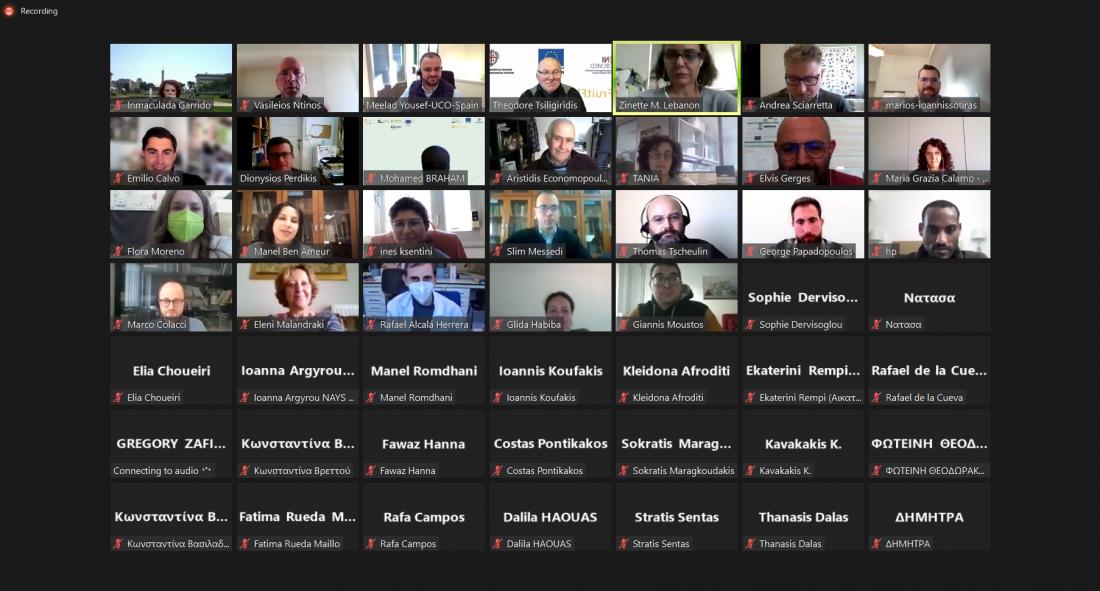FruitFlyNet-ii hosted a webinar on current Integrated Pest Management approaches

On Monday, 21st of February 2022, the 1st FruitFlyNet-ii Webinar “A Location Aware System to enhance Integrated Pest Management (IPM) practices, the cases of olive fruit fly (Bactrocera oleae) and Medfly (Ceratitis capitata)” was held with the participation of more than 150 persons including project personnel as well as farmers, farmer advisors, researchers and SMEs from the countries participating in the project.
The first part of the webinar was devoted to the description of the current approaches in the monitoring, decision, and spraying methodologies for each pest, implemented in each of project partners’ countries. In almost all cases it becomes clear that pest monitoring is suffering by delays and inaccuracy, decision making is based on empirical approaches and spraying execution is mostly based on cover sprayings related to the phenological stage of the plant or on calendar basis. All these limitations are critical in the efficacy rate, the quantity and quality of the production, the environmental impact and the cost of the methods currently applied in Integrated Pest Management (IPM).
In the second part of the event, the Location Aware System (LAS) of FruitFlyNet‐ii project for Pest Monitoring, Decision Making and Spraying Control was described. The system introduces pest e-monitoring methods using e-traps, scientifically sound IPM Decision Support Systems, spraying risk maps, remote spraying guidance and traceability, based on e-services and technological innovations. Finally, the specific e-solutions offered by the new approaches set by LAS and how these can be integrated in each practice within IPM programs for the olive fruit fly and the Medfly were also examined.
An interesting discussion followed, where several participants stressed the need to proceed fast in new IPM approaches and agreed that the suggested LAS solutions have a high potential in shaping near future IPM. It was also concluded that serious limitations in the current IPM methodologies are observed, therefore the LAS approaches proposed by FruitFlyNet-ii project can address them sufficiently and revolutionize current IPM practices.









